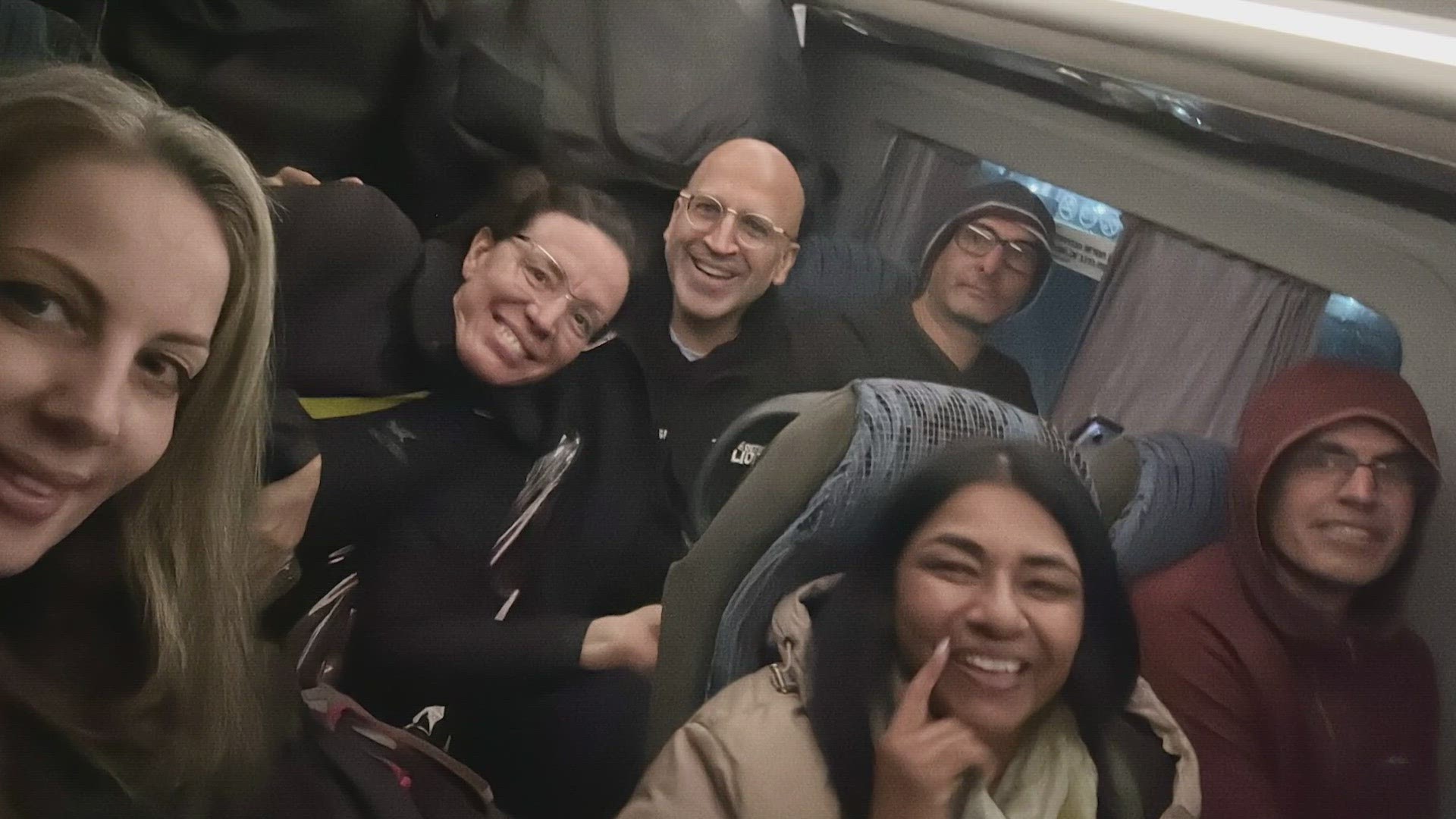DALLAS — The unofficial oath every medical doctor takes when they enter the profession is not bound by state lines or time zones. On Saturday Dr. Hina Cheema left DFW Airport for a trip that will be memorable for all the wrong reasons.
"I cannot believe we have allowed that to go on as humanity," Dr. Cheema said.
The North Texas OBGYN is leaving DFW Airport on a medical mission many miles away in war-torn Gaza. It's where orthopedic surgeon Dr. Khawaja Ikram, also a North Texas doctor, just came from.
"You get used to the bombings. You get used to the gunfire. It's just kinda background noise, unfortunately," Dr. Ikram said.
Both doctors signed on to help through MedGlobal, a non-governmental organization. According to their website, MedGlobal "is a humanitarian, charitable non-governmental organization that provides emergency response and health programs to build resilience among vulnerable communities around the world."
"I am just going there to support the local staff," said Dr. Cheema.
Dr. Ikram tells WFAA that the hospital staff in Gaza is very good and very friendly. But he also says they are worn, weary, and working with few resources.
Health officials report 30,000 Palestinians have been killed and over 70,000 are wounded in the Gaza Strip, according to ABC News.
"There was miles, hundreds of trucks, of aid on the side of the road they wouldn't allow to enter," said Ikram.
Hina is leaving her two children for two weeks, and she says that will be hard. But she is reminded she'll be helping mothers who've lost their children forever.
"I am grateful that I can come back. They don't have a choice. It is their reality," she said.
Both doctors are of Pakistani descent, and they are going there to help. But both say a cease-fire in the region is what's really needed.
The doctors tell WFAA that many of the wounded are children. Dr. Ikram spent 10 days, 12 hours a day, in the operating room.
"Many of the people we saw there ended up with amputations; either one body part or multiple body parts. When I see these children see my own children having to suffer through this," said Ikram.
Dr. Ikram returned home with perspective and an appreciation for where he lives. Ikram also returned home with a seashell with Arabic scribbled on it. It is something one of his young patients who lost everything gave him.
"It says 'From Gaza, with love, despite the pain,'" he said.

